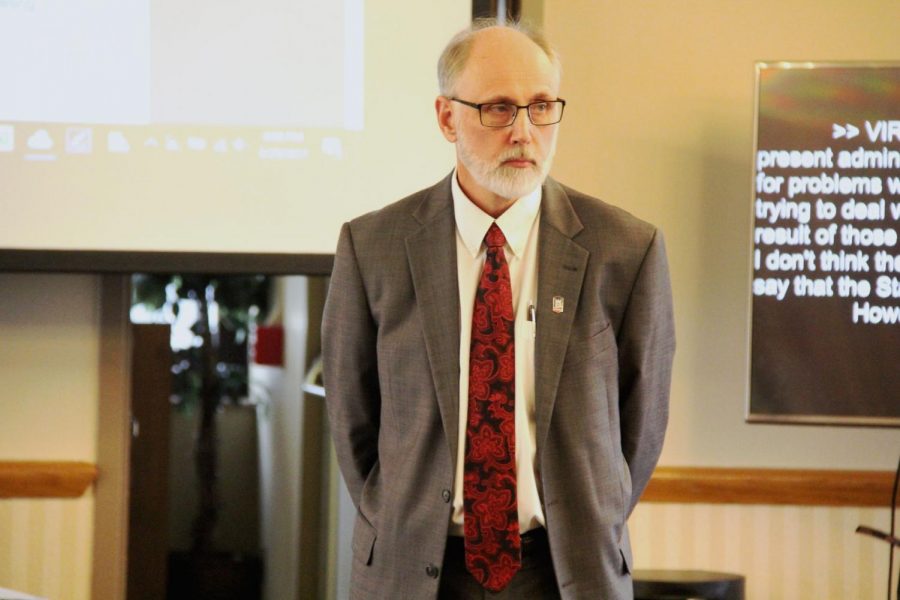President addresses financial crisis
April 6, 2017
DeKALB — University officials are exploring options to prepare for a “worst-case scenario” in which NIU is not provided with state funding, according to a Tuesday campus update from President Doug Baker.
Baker released the campus update responding to the financial crisis in Springfield in which state lawmakers are struggling to agree upon a budget for the third year in a row. If the university does not receive state appropriations for Fiscal Year 2018, a gap of $35 million will have to be filled to maintain “adequate reserves.”
“Be assured that we are working aggressively to address the issues with other Illinois universities, but we need to plan for at least continued legislative gridlock and manage accordingly,” Baker said in the update.
Although university officials are exploring ways to cut corners in spending, the tuition for the upcoming academic year has been set without a raise from the cost for the 2016-2017 academic year, Spokesperson Joe King said.
However, sources of revenue would still have to be enhanced to fill the multi-million dollar gap, which means potentially seeking funding from Huskie benefactors, who can donate money to support professors and offer support to specific programs in need, King said.
“It will be a deliberate and thoughtful process,” King said. “We are opening up opportunities for benefactors to support other things besides scholarships.”
While payroll for faculty has fallen by about six percent, decreasing the amount of employees at the university is still being considered because employment costs make up 50 percent of NIU’s budget.
However, Baker said in the update that furloughs, or mandated unpaid leaves of absence, are not being considered.
“It has been evaluated here, and it was decided that it wasn’t the best option,” King said. “Furloughs can be very disruptive, and they don’t provide a long-term solution. It is not the best path to go down.”
Some faculty members were relieved to learn that university officials are not planning on taking this step.
“The faculty [was] very concerned about furloughs,” Associate English Professor David Gorman said. “There has been furloughs in similar institutions around the state. When Baker says we are not at that point yet, I believe him.”
Another option being explored in the case that funding isn’t appropriated is the sale of university assets such as campus property, but NIU officials must go through state legislatures to get permission to sell off these assets, King said.
“There is no list of buildings or spaces we are selling,” King said. “It is just another tool in the toolbox in order to deal with this situation.”
Other options on the table include focusing on realizing Program Prioritization recommendations that reduce university spending.
“All of the deans and department heads are going to go back and look at their programs and decide what is appropriate,” Baker said. “We are at an advantage because we have been going through the Program Prioritization process so we have gathered a lot of data over the last couple of years.”
State Rep. Bob Pritchard said there will likely be a bill proposed in Springfield that will appropriate some funding to higher education.
“It is not going to be a real influx of funding, but it will be enough to keep everyone alive for another day,” Pritchard said.
The bill would use $560 million to financially support higher education institutions, the Illinois Student Assistance Commission, community colleges and the Math and Science Academy for two to three months, Pritchard said.
“Dr. Baker, deans and department heads and Mike Mann, who runs political outreach, are in Springfield all of the time and are in contact with the governor’s office and lawmakers,” King said. “This is the issue that occupies the vast majority of the leadership’s time.”













